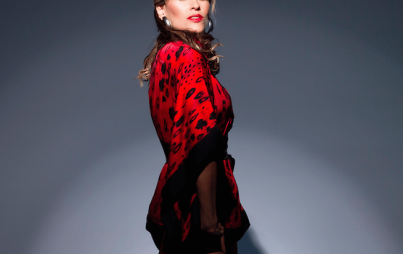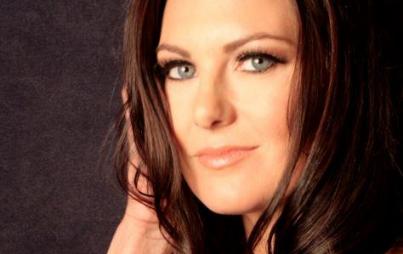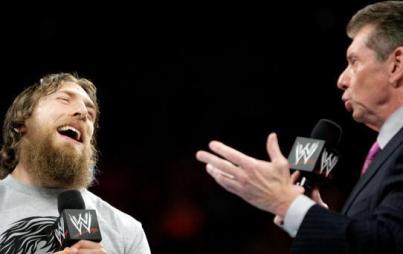
Voices from on and off the field sound off on sexism and gender inequality in sports. You can read other articles in the series here. Have a perspective you'd like to add to the discussion? Write us at ravishly@ravishly.com.
Shelly Deathlock enjoys strong style brutality, crushing enthusiasm, and old school bloodbaths, and Saka Otoshi takes her breath away. She contributes to Wrestling on Earth and Femmezuigiri, and you can find her on Twitter.
“I mean, you look like a girl, but everything about you is like . . . it’s more like a guy.”
That might be a familiar statement for you. When you’re young and you don’t wear dresses, when you don’t listen to the right music, when you love professional wrestling, when you play sports or video games, when you do anything that might just maybe seem like it’s something less than strictly feminine, you’re suddenly decidedly not-feminine, and other people remove your girlhood from you.
Maybe you were born a boy so nobody acknowledged your girlhood to begin with. Maybe you’re okay with it. Maybe you didn’t want your girlhood or subsequent womanhood, anyway, or maybe you don’t even know or care what that might mean at any stage of your life.
I didn’t care for a long time. Loving wrestling and video games from a young age, I grew up with a lot of male friends and with no idea what a “woman” was supposed to be or if I was supposed to be one someday or how I might get there. I wasn’t interested in boyfriends or male attention. I was more like the guys at school and the guys, to their credit, just treated me like one of the guys. Never a potential girlfriend. Not a pretty girl. Not someone to be nervous around or flirt with. Just one of the guys. Which is where a confusing problem starts.
Why was I just a “guy”? Why did my behavior, interests, and mannerisms that just seemed normal to me hinge on having a masculine identity and ignoring a feminine one?
What is a woman and how do I know I am one if other people don’t recognize that in me? How would the recognition of me as a “woman” change my relationships and opportunities? Who even makes these decisions?
I’ve learned a lot more about physical dysphoria, and the complex and personal issues that make someone identify as a gender other than the one they were assigned at birth, but I used to get upset and confused by transgender friends. As I was going to college and navigating womanhood, trying to figure out where the limits of gender were, it seemed so fluid and confusing, and yet—wonderful people who were born female, graceful and brilliant and strong and so much like me in so many ways were defining themselves as men.
How did they know? Why didn’t I know? Why did something so difficult and personal have to be one box or the other? Why couldn’t “woman” just expand to encapsulate who these people were?
Professional wrestling has always been dominated by men. Men fighting men to make money, to prove superiority, to entertain, to tell stories in a way that is impossible in any other medium. It’s a complex cooperation-but-competition, in the locker room and in the ring. It’s a beautiful art form and in many ways a legitimate sport, and it’s been my favorite thing in the whole world for twenty years.
Many of the greatest wrestlers of all time are men—and many of them are women. Women have been innovating and wrestling each other in women-only spaces for nearly as long as men have been wrestling in their men-only spaces, and both of these spaces have been incredibly worthwhile.
More recently, wrestlers and wrestling organizations all over the world have been breaking the gender barrier between these spaces. Women can and do wrestle men, either in mixed tag team matches or in singles matches, and many if not most of these matches are believable as legitimate professional wrestling contests, not just played for laughs.
Minoru Suzuki wrestled Aja Kong in 2011. For the uninitiated, Minoru Suzuki is a 5'8 230-pound monstrosity of a human being who founded the mixed martial arts organization Pancrase in 1993, when apparently fighting people in professional wrestling wasn’t good enough for him. He was trained by legendary practitioners like Yoshiaki Fujiwara, Karl Gotch, and Billy Robinson. He was an Olympic alternate freestyle wrestler. He’s easily and inarguably one of the best and most legitimate in-ring professional wrestlers of all time. He’s currently the GHC Heavyweight Champion of the Japanese professional wrestling organization NOAH, and he spends his spare time bass fishing and stretching rookie wrestlers until they scream in pain so they learn how to wrestle correctly.
Aja Kong is a 5’5 220-pound monstrosity of a human being as well who founded an all-women’s wrestling promotion of her own and dominated the landscapes and championships of several others over a career that has spanned three decades. Her match with Minoru Suzuki is beautiful. Suzuki and Kong trade strikes, submissions, backfists, and suplexes. Not once does he land a softer blow than he’d land on a male competitor, and not once does he react to a blow of hers that she doesn’t earn. The same goes for her; she shrugs off his less-than-impressive chops. When Suzuki attempts a cover, he hooks a leg. When he attempts an arm bar, he pulls it hard. He respects that she isn’t a pushover and that he can’t beat her easily. She’s a woman, but in that ring she’s a wrestler, and he treats her like every other wrestler who’s ever been in a ring with him.
He defeats her, but with effort, and embraces her and raises her arm at the match’s conclusion.
It’s important for me, as a grown woman who is still trying to figure out what “woman” means, and as a wrestling fan, to see another woman display the kind of absolute bestial insanity I admire in a man like Minoru Suzuki—it’s even better if I can see a woman display these qualities in direct competition with him.
Just as “woman” has expanded to include so many kinds of women displaying their feminine and masculine qualities in so many ways and still being recognized as women rather than “one of the guys,” it’s important for “wrestler” to expand to include every type of performer, and to encourage these performers to work together. It’s important for men and women to play and compete and entertain in the same space and on the same grounds in combative art and sport.
It would be ridiculous in 2015 to assert that other performance art should somehow segregate by gender on the grounds of believability or propriety— that only men should perform in plays and women’s roles should be played by men dressed as women because it’s somehow improper for women to be actors, or that women are somehow incapable of acting alongside men and should only act alongside women, but these are carbon copies of ideas that opponents of intergender wrestling still express ad infinitum.
Antiquated notions of gender-based wrestler capability need to dissolve. Women can be and are the same kind of wrestlers as men. Wrestling is for everyone, and wrestling is better if men and women can do it together.







